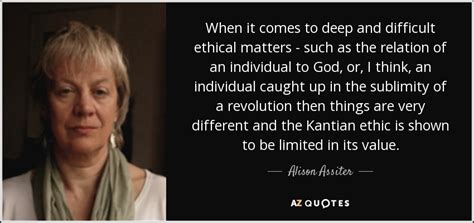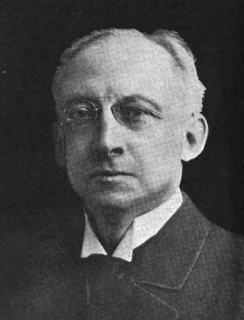A Quote by Jean Piaget
Moral autonomy appears when the mind regards as necessary an ideal that is independent of all external pressures.
Related Quotes
Calvin's theocentric irrationalism eventually revealed itself as the cunning to technocratic reason which had to shape its human material. Misery and the poor laws did not suffice to drive men into the workshops of the early capitalistic era. The new spirit helped to supplement external pressures with a concern for wife and child to which the moral autonomy of the introverted subject in reality was tantamount.
To overcome the anxieties and depressions of contemporary life, individuals must become independent of the social environment to the degree that they no longer respond exclusively in terms of its rewards and punishments. To achieve such autonomy, a person has to learn to provide rewards to herself. She has to develop the ability to find enjoyment and purpose regardless of external circumstances.
On a long flight, after periods of crisis and many hours of fatigue, mind and body may become disunited until at times they seem completely different elements, as though the body were only a home with which the mind has been associated but by no means bound. Consciousness grows independent of the ordinary senses. You see without assistance from the eyes, over distances beyond the visual horizon. There are moments when existence appears independent even of the mind. The importance of physical desire and immediate surroundings is submerged in the apprehension of universal values.
Just as man as a social being, cannot in the long run exist without a tie to the community, so the individual will never find the real justification for his existence, and his own spiritual and moral autonomy, anywhere except in an extramundane principle capable of relativizing the overpowering influence of external factors.
There is yet a silent agony in which the mind appears to disdain all external help, and broods over its distresses with gloomy reserve. This is the most dangerous state of mind; accidents or friendships may lessen the louder kinds of grief, but all remedies for this must be had from within, and there despair too often finds the most deadly enemy.
We want to believe in the essential, unchanging goodness of people, in their power to resist external pressures, in their rational appraisal and then rejection of situational temptations. We invest human nature with God-like qualities, with moral and rational faculties that make us both just and wise. We simplify the complexity of human experience by erecting a seemingly impermeable boundary between Good and Evil.
Anarchism is in reality the ideal of political and social science, and also the ideal of religion. It is the ideal to which Jesus Christ looked forward. Christ founded no church, established no state, gave practically no laws, organized no government and set up no external authority, but he did seek to write on the hearts of men God's law and make them self-legislating.




































